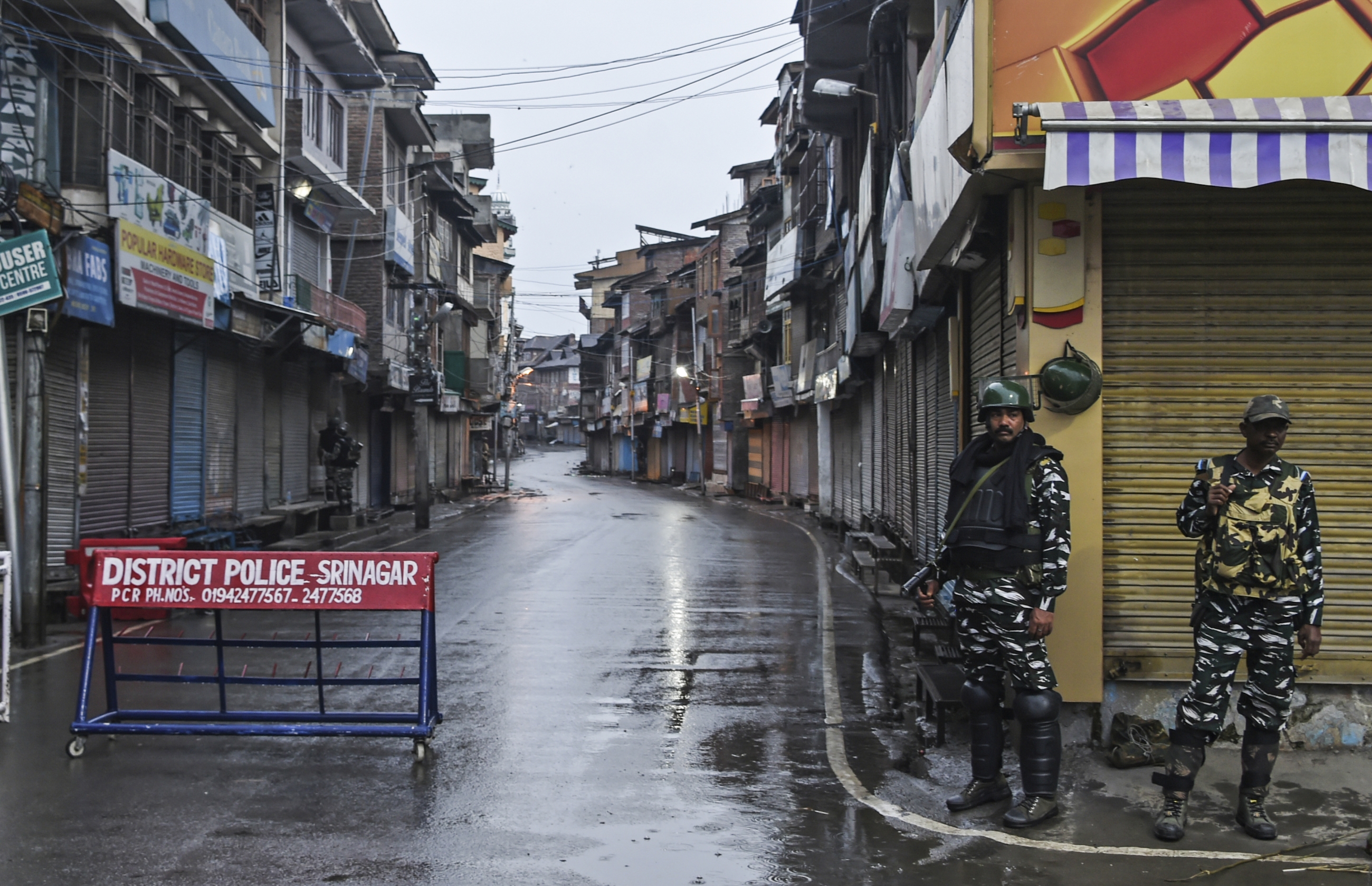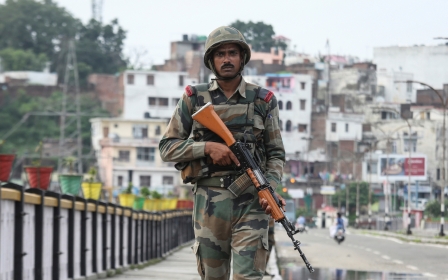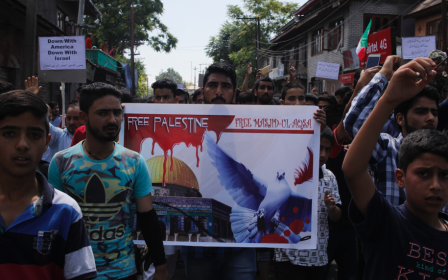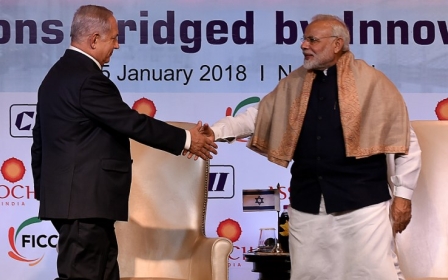'An affront to Muslims': OIC slams India's crackdown on Kashmir

The Organisation of Islamic Cooperation (OIC) has raised concerns over reports that India has blocked Muslims in Indian-occupied Kashmir from exercising their religious freedoms, a policy the pan-Islamic group said is an affront to Muslims around the world.
In a statement on Wednesday, the 57-member organisation said it had become aware of reports of a "curtailment of religious freedoms of Kashmiri Muslims in Indian Occupied Jammu and Kashmir".
That includes the imposition of a "complete lockdown" of the area "even on the auspicious occasion of Eid", as well as "denying Eid Al-Adha congregation", said the OIC, referring to the Muslim holiday that was celebrated earlier this week.
"Denial of religious rights constitutes a serious violation of international human rights law and is an affront to Muslims across the world," the group said.
New MEE newsletter: Jerusalem Dispatch
Sign up to get the latest insights and analysis on Israel-Palestine, alongside Turkey Unpacked and other MEE newsletters
Kashmir has been under lockdown since 5 August when the Indian government revoked Article 370 of the country's constitution, effectively ending Kashmir's semi-autonomous status and forcing it to fall under India as a union territory.
'[It is] hypocritical for the OIC to be speaking about religious freedom while being silent about matters concerning life and dignity'
- Idrisa Pandit, Kashmiri academic in Canada
The decision also triggered the cancellation of another element of the constitution, Article 35A, that banned those from outside the state from buying land there.
The abrogation of Article 35A brought with it a fear that India may initiate demographic changes in Kashmir, such as the establishment of Hindu-only settlements in the mould of the illegal Jewish-only settlements Israel has built for decades in the occupied Palestinian West Bank.
Ahead of the announcement, Kashmir was gripped with panic as tens of thousands of troops were deployed to the region, phone and internet connections were cut, television channels carrying news from outside the area were blocked, and politicians were arrested.
A strict curfew was also imposed across the valley.
In Srinagar, the capital of Indian-occupied Kashmir, more than one million people are living under what Mohamed Junaid, a Kashmiri anthropologist based in Massachusetts, described as "a military siege".
"Entire streets are blocked. They cannot communicate with each other," Junaid told Middle East Eye.
Junaid also said the communication blackout makes it unclear the extent to which the blockade has impeded life in the valley.
On Eid, most mosques remained shut, though some worshippers were allowed to visit certain ones.
'Hypocritical'
Idrisa Pandit, a Kashmiri academic based in Ontario, said that while it is true that Muslims in Kashmir have not faced such heavy religious restrictions in the past, it is "hypocritical for the OIC to be speaking about religious freedom while being silent about matters concerning life and dignity".
"It is very, very shameful - of all the countries that are part of OIC - for their continued silence on this grave humanitarian crisis that is unfolding in front of their eyes," Pandit told Middle East Eye.
The OIC is composed of 57 states across four continents, and aims to "safeguard and protect the interests of the Muslim world". It is currently chaired by Yousef bin Ahmad Al-Othaimeen of Saudi Arabia.
The erosion of religious freedom in India is gathering attention internationally, with several reports pointing to an increase in abuses against religious minorities, including intimidation, lynchings and prejudice.
In June 2019, the US State Department's Report on International Religious Freedom said attacks on religious minorities in India often came with the alleged complicity of law enforcement officers.
On Wednesday, the OIC also called for the international community to help resolve the crisis in Kashmir.
"The OIC also calls upon the international community, including the United Nations and other relevant bodies, to increase efforts for a negotiated settlement of Jammu and Kashmir dispute on the basis of relevant UN Security Council resolutions," the group said in its statement.
Since 1947, parts of Kashmir have been held by both India and Pakistan - and claimed by both countries in full.
According to UN resolution 47 of 1948, Kashmiris were promised a plebiscite following the end of the first India-Pakistan war, but both sides have demonstrated little willingness to meet the requirements for a referendum to take place.
While Pakistan continues to call upon the international community to assist in resolving the Kashmir dispute, India claims that it is an internal affair.
Human rights organisations say that around 70,000 people have been killed in the conflict in the region since an insurgency began in 1988, while another 7,000 people have disappeared.
Middle East Eye delivers independent and unrivalled coverage and analysis of the Middle East, North Africa and beyond. To learn more about republishing this content and the associated fees, please fill out this form. More about MEE can be found here.




